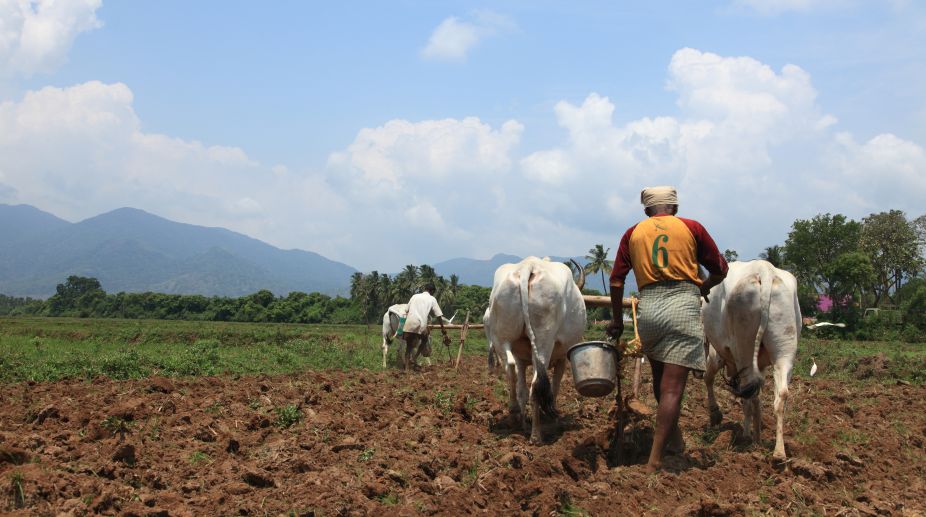Lok Sabha gives nod to Demands for Grants, Appropriation Bill for 2025-26
The Lok Sabha on Friday passed the Demands for Grants of various ministries in respect of the Union Budget for 2025-26.

PHOTO: Getty Images
The possibility of a universal basic income was widely discussed before the presentation of the union budget this year, and although the budget did not have any room for this the debate has lingered on. So it is important to get a proper idea of what the proponents of the idea have in mind.
An important indication of this was provided on February 24 by the Chief Economic Advisor Arvind Subramanian. As he has been closely associated with this idea from the beginning of the debate on this issue, it is important to understand his views on this subject.
Advertisement
Speaking to students of the Indian Institute of Management Ahmedabad he said that the cost of providing universal basic income is so huge that it cannot be provided as an add-on to the existing welfare programs of the government. If this is attempted, government finances will go bust, he said. Therefore the concept of universal basic income can be implemented only after withdrawal of many of the existing welfare programmes.
Advertisement
This had been suggested by analysts earlier also – that if the government introduces universal basic income, it will at the same time do away with some of the most expensive and seemingly well-entrenched welfare programmes. But now we have the Chief Economic Advisor stating this in very clear terms and so there should be no remaining doubts on this score.
However there is still some uncertainty about which among the welfare schemes may be targeted for removal if and when the government makes up its mind about introducing universal basic income. The Chief Economic Advisor appeared to provide a hint of this when he said that the most deserving people are at present left out of the national rural employment guarantee scheme.
Keeping in view the fact that among various welfare schemes the food subsidy bill is very high, the public distribution system may also be targeted for removal or significant reduction before the introduction of a basic universal income. Of course all this is not going to be easy because laws governing rural employment guarantee and food security are in place. But at the same time the government has given clear indications of a big cut down of welfare schemes if and when universal basic income is introduced, and so we have to consider carefully what are the likely areas of cutback in such an eventuality. A key question is whether the withdrawal or scaling down of some of these welfare measures can be justified as a necessary price for the introduction of universal basic income.
The fact that this is not going to be easy was conceded by Subramanian himself when he stated at Ahmedabad, “It is very easy to introduce new programmes…but it is very difficult to withdraw the existing ones.”
How easy or difficult this is can be debated at a different level. The more basic question is whether this is desirable from the point of genuine and overall welfare of the people particularly the weaker sections.
Welfare schemes have been introduced in response to various needs. These have been frequently reviewed and debated and important reforms have been introduced on this basis. Over a period of time certain expertise has been built up regarding the implementation of these schemes. Serious studies taken up in at least some states reveal that the public distribution system could be reformed.
People have got used to obtaining certain benefits under these schemes and as they are increasingly better informed about these and other rights-based schemes, they can be better expected to avail their benefits in future.
Hence the costs in terms of withdrawal of important schemes and entitlements can be very high. Further we do not know exactly what kind of universal basic income scheme will be introduced and what its scale and dimensions would be. People may be deprived of some well established welfare schemes and then what is introduced may turn out to be less beneficial on balance. So people need to be very cautious and determined to protect their real interests and rights.
With all their limitations and problems, the rural employment guarantee scheme and the public distribution system on the whole play an important role in meeting the basic needs of weaker sections particularly in difficult times. The same can be said of some other important welfare schemes.
Criticisms of these schemes can be at two levels. One is constructive criticism with the aim of trying to improve the scheme to provide better benefits to more and more deserving people. At another level there is a different kind of criticism aimed at discrediting and eventually dismantling a pro-poor scheme. The way in which a wave of the second kind of criticisms has been unleashed suggests that the ground is being created for the eventual withdrawal or significant scaling down of several pro-poor schemes.
Hence it is important to examine the various proposals very carefully from the perspective mainly of protecting the rights and entitlements of weaker sections of society.
The writer is a freelance journalist who has been involved with several social movements and initiatives.
Advertisement
The Lok Sabha on Friday passed the Demands for Grants of various ministries in respect of the Union Budget for 2025-26.
Prime Minister Narendra Modi said on Wednesday that the Union Budget this year has emerged as a blueprint for India's future, where priority has been given to infrastructure and industries in investment.
The Union government on Thursday extended the term of Chief Economic Adviser V Anantha Nageswaran by two years through March 31, 2027, an office order by the Department of Economic Affairs said.
Advertisement
